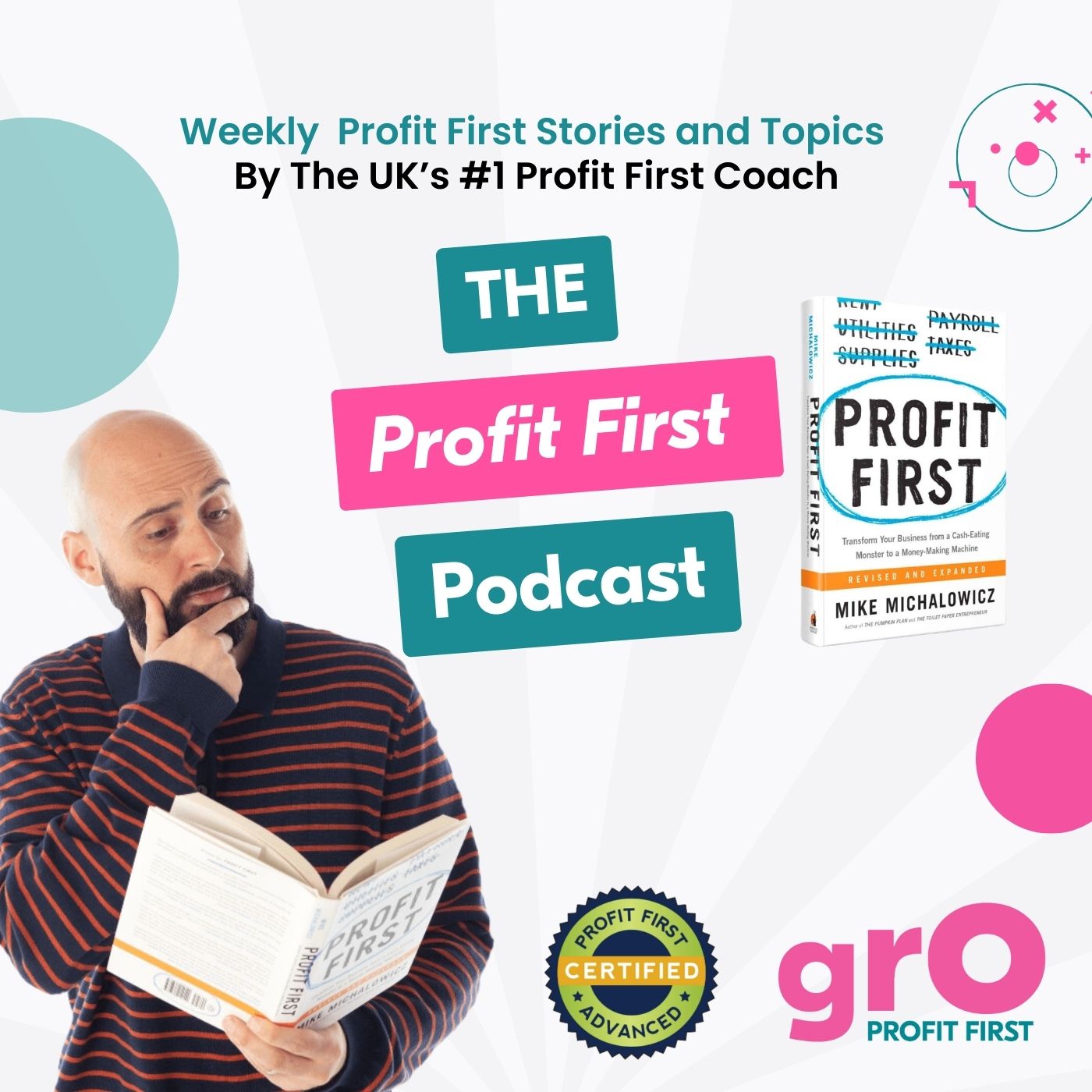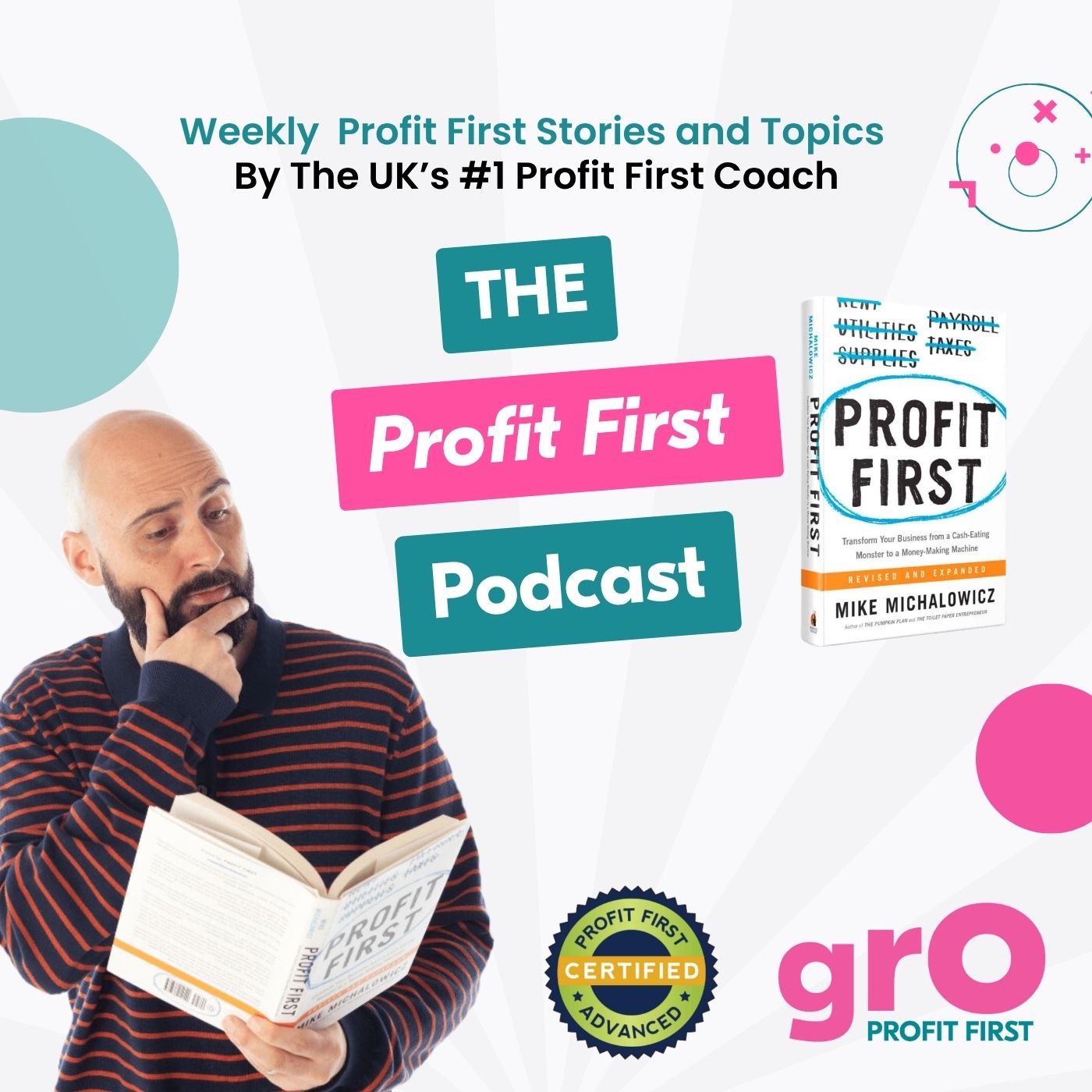Episode Transcript
Speaker 0 00:00:01 Hi guys, this is Steven Edwards, the director of CTA, uh, profit first accountant. So today I want to talk a little bit more about the concept of the accidental entrepreneur, because that's what the new podcast is about. Uh, essentially I'm gonna share my experience, my own journey of becoming a business owner, um, CTAs been running for probably around 10 years now, and we've, we've grown a lot in that time, but also I wanna share the, the journeys of lots of our clients that I've seen them go on. And also lots of other business owners that I've, um, been privileged to sort of mix with in the last few years. So the whole concept of the accidental entrepreneur really stems from, uh, quite a famous business book. And you might not be a reader. You, if you listen to this, you'll probably listen to listen to audio books and podcasts rather than actual books.
Speaker 0 00:00:59 I'm sure there's an or version, but the business E myth revisited it pretty much stems from it's inspired as I have to give a lot of credit to the business E myth, which is quite a well known book. I mean, it's, I think it's been out for probably over 20 years now, but from Michael Gerber and essentially he talks about three stages that business owners go on. It, it, it tends to be in a particular order, but it's not always the case. So essentially when you start your own business, you don't really know what you are doing. <laugh> and I can speak from experience. You, you are good at whatever the actual output, whatever the actual business industry is. So in my case, I was an accountant. I was a good accountant. I was experienced. Um, wasn't perfect. Didn't know everything because like most, um, industries, it's, it's quite difficult to get one person who can be, uh, amazed at every single aspect of that industry.
Speaker 0 00:01:59 But I was quite arou well rounded, experienced, confident accountant. However, when I started my business, essentially, I had zero knowledge on day one. I'm starting from scratch. And that's the same. Whether you are a painter and decorator, whether you are an architect, whether you are starting an eCommerce business, whatever it is, you've, you've got a service knowledge of delivering a service, or you've got a product knowledge most of the time, whether it's retail or whatever it is, but you are not necessarily experienced in running a business. So Michael Gerber talks about the idea that you, when you start your business, you are a technician. So you're a technician because you are, you are a technical person, you know how to do the stuff, the work, the, the output, whatever it takes to deliver the service. That's the technical side of a business. You, you are a technician when you first start a business.
Speaker 0 00:02:51 In most cases, um, some people might jump to different stages if they're getting lots of funds in and they've got really ambitious, um, sort of target and, and goals that they're aiming for. But essentially the first stage is a technician and us, you doing the work, knowing what you're doing. And the next stage you go through is, is being a manager. And, and, you know, there's no sort of fancy, hidden and meaning in, in that is when you start employing people, you're no longer working for yourself, kind of like a freelancer for yourself, or, um, uh, you know, a, a contractor, you, you move beyond the technician stage to being a manager and you're managing people. And most of our clients probably fall into those two camps. You either work for yourself. You're really good at what you do. And you're kind of learning the ropes.
Speaker 0 00:03:41 Um, initially in the first year, you probably hardly know anything. And, um, you, you wanna learn some of those skills to become a business owner from your accountant, but a lot of it you're gonna learn yourself. You're gonna learn from your experience from your mistakes, um, and you know, mixing with other business owners. And then the other people take on staff because they get too busy and they want to take on staff. And that's not necessarily, you know, the, the, the course that everybody wants to go on when they're running their business, it, you know, that doesn't need to be envy or, or competition saying this way is better. If you take on staff, you've got a better business. It really depends on what you want from your business. Some people want to remain as that technician. They want to remain as the person who they love, what they do.
Speaker 0 00:04:29 You know, often this artistic type work or, um, high level service businesses. Often that's just one person or say, you're a lawyer, an architect that, that tends to be the case most of the time. Um, but especially in creative industries, then it, you're not gonna hire anybody else to do what you do. Um, so you've got the technician, you've got the manager and the final stage is the entrepreneur. And the entrepreneur is basically, you are running the business as a business owner. You'll no longer running the business as an employee or a technician. So often what happens is even though people progress from technician to manager, what happens is that they're juggling more balls. They're not just juggling their own balls when they first started. They're juggling they're team members balls as well. So they're basically trying to keep everything running. And they're kind of the, the, um, you know, the Jo that sticks everything together in the business.
Speaker 0 00:05:26 And, and often when you take on team members for a lot of people, you become busier because you've actually got more people. You're not, you're not just, um, serving your clients, your customers, you're now serving your team as well, even though technically they work for you. It often makes people busier. And the final stage is the entrepreneur where it, it doesn't mean you are sat on a beach and you're doing nothing, but you are, you are moving towards this, uh, business that runs itself, and you are not a bottleneck. You are not the, the, um, an employee in your business. You're actually a business owner. And that's your full time job is being a business owner. So I'm not gonna delve into the specifics right now of how do you transition for each, each stage. But I wanted to give you a bit of a preview of what we are gonna be looking at, what sort of topics we're gonna be covering in the next few weeks.
Speaker 0 00:06:18 And I wanna share my experience of moving through these stages and also that of clients, um, we'll look at case studies. I'll also get other people on the podcast so we can get them to share their story. And hopefully, maybe you can relate to where you are right now, your technician, your manager. There are some people out there who, who are wearing the entrepreneur hat. So they do have a business that's running without them. But if I'm honest in my experience, it's very rare. And that's what this whole podcast is about, is the journey of, uh, of basically progressing your yourself as a business owner. As I mentioned, that might not be what's right for you. It might be that you are very good at what you do, and you're not looking to take people and you're not looking to have a business that kind of runs without you to a certain extent. And, and that's fine. Uh, but that's what we're gonna be dived into in the next few weeks. Thanks guys.


